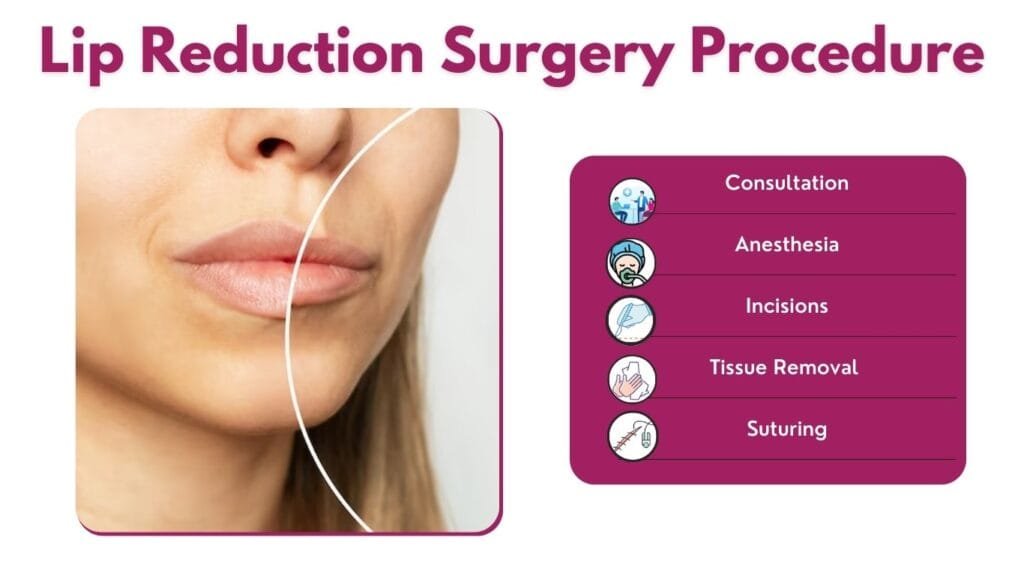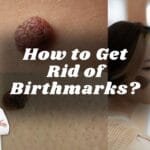In today’s world, cosmetic surgery has become increasingly popular as people strive to achieve their desired appearance. One such procedure that has gained attention is lip reduction surgery. Individuals who feel that their lips are too large or disproportionate may consider this option to enhance their facial aesthetics.
However, before opting for any surgical procedure, it’s crucial to have a comprehensive understanding of its safety, effectiveness, and permanence. In this article, we will delve into the details of lip reduction surgery, exploring its safety and long-term results.
Understanding Lip Reduction Surgery
Lip reduction surgery, also known as cheiloplasty, is a cosmetic procedure aimed at reducing the size of the lips. It is commonly performed on individuals who are dissatisfied with the fullness or shape of their lips. This surgical intervention can involve both the upper and lower lips or focus on just one lip, depending on the patient’s aesthetic goals.
Is Lip Reduction Surgery safe?
Lip reduction surgery is generally considered safe when performed by a qualified and experienced plastic surgeon.
Here are some key points to consider regarding the safety of this procedure:
- Surgeon’s Qualifications: Choose a board-certified plastic surgeon who specializes in facial procedures. Verify their credentials and experience in performing lip reduction surgeries.
- Consultation: Before the surgery, you’ll have a consultation with the surgeon. Discuss your expectations, medical history, and any concerns you may have. The surgeon will evaluate whether you are a suitable candidate for the procedure.
- Risks and Benefits: Your surgeon will explain the potential risks, such as infection, scarring, or asymmetry, as well as the benefits, which may include improved aesthetics and reduced discomfort.
- Surgical Technique: The surgeon will use precise techniques to remove excess tissue from your lips while maintaining a natural appearance. This minimizes the risk of over-reduction or noticeable scarring.
- Recovery: After surgery, there may be some swelling, bruising, and discomfort, which are common side effects. Follow your surgeon’s post-operative instructions for a smooth recovery.
- Long-Term Results: The final results may take several weeks to fully manifest as swelling subsides. Lip reduction surgery can provide long-lasting improvements when performed correctly.
- Complications: While rare, complications such as infection, excessive bleeding, or adverse reactions to anesthesia can occur. Choosing a skilled surgeon reduces the likelihood of these issues.
- Scarring: In most cases, lip reduction scars are discreet and fade over time. Proper wound care and scar management can further minimize their visibility.
- Realistic Expectations: Understand that the goal of lip reduction surgery is to achieve harmonious lip proportions, not extreme changes. Realistic expectations and open communication with your surgeon are crucial.
In summary, lip reduction surgery can be safe and effective when performed by a qualified professional. Prioritize finding a reputable surgeon, discussing your goals and concerns openly, and following post-operative care instructions for the best possible outcome.
Lip Reduction Surgery Procedure

- Consultation: The process begins with a consultation with a board-certified plastic surgeon. During this consultation, the surgeon evaluates the patient’s lips and discusses their expectations.
- Anesthesia: On the day of the surgery, the patient is administered either local or general anesthesia, ensuring a pain-free experience.
- Incisions: The surgeon carefully makes incisions inside the mouth to access the lip tissues.
- Tissue Removal: Excess tissue is removed, and the lips are reshaped to achieve the desired size and proportion.
- Suturing: The incisions are closed with dissolvable sutures, leaving minimal visible scarring.

Lip reduction surgery, also known as cheiloplasty, is a cosmetic procedure designed to reduce the size and prominence of the lips. This surgery can offer several benefits to individuals who may feel self-conscious about their lip size or experience functional issues due to excessively large lips.
Here are the key advantages of lip reduction surgery:
- Enhanced Facial Harmony: Lip reduction surgery can help create a more balanced and harmonious facial appearance by reducing disproportionately large lips. This can improve overall facial aesthetics.
- Increased Self-Confidence: Individuals with excessively large lips often feel self-conscious about their appearance. Lip reduction surgery can boost self-esteem and confidence by providing a more natural lip size that aligns with their facial features.
- Improved Speech and Function: In some cases, oversized lips can interfere with speech and eating. Lip reduction surgery can alleviate these functional issues, making it easier to articulate words and consume food comfortably.
- Minimized Discomfort: Large lips can lead to discomfort, irritation, and chapping. Reducing lip size through surgery can alleviate these physical discomforts and enhance overall comfort.
- Customizable Results: Lip reduction surgery is highly customizable, allowing patients to work closely with their surgeon to achieve their desired lip size and shape while maintaining a natural look.
- Long-Lasting Results: The results of lip reduction surgery are generally permanent, providing a lasting solution to lip size concerns without the need for regular maintenance.
- Minimal Scarring: Skilled surgeons can minimize scarring by placing incisions discreetly along the natural contours of the lips, ensuring that scars are inconspicuous.
- Quick Recovery: Recovery from lip reduction surgery is typically relatively quick, with most patients able to resume their regular activities within a few days to a week.
It’s important to note that while lip reduction surgery offers these benefits, it should be performed by a qualified and experienced plastic surgeon to ensure safety and achieve the desired results.
Safety Concerns of Lip Reduction Surgery
When it comes to any surgical procedure, safety is of paramount importance. Lip reduction surgery, like any other cosmetic surgery, has its share of risks and considerations.
Possible Risks:
- Infection: As with any surgery, there is a risk of infection at the incision site. Surgeons take precautions to minimize this risk.
- Swelling and Bruising: Post-surgery swelling and bruising are common but temporary side effects. Patients are advised to follow post-operative care instructions to manage these symptoms.
- Scarring: While surgeons make incisions inside the mouth to minimize visible scarring, individual healing processes can vary.
- Sensation Changes: Some patients may experience temporary changes in lip sensation, which usually resolve over time.
Is Lip Reduction Surgery permanent?
Yes, lip reduction surgery is generally considered permanent. Here’s why:
- Tissue Removal: Lip reduction surgery involves the removal of excess lip tissue, typically from the inner pink portion of the lips. This means that the tissue that is removed will not grow back on its own.
- Scarring: While the surgical incisions will leave scars, they are typically small and discreet. Scars may fade over time but are unlikely to cause a significant increase in lip size.
- Long-lasting Results: The reduction in lip size achieved through surgery is designed to be long-lasting. The procedure is intended to provide patients with the desired lip size, which should be maintained over time.
- Natural Aging Process: While lip reduction surgery is permanent, it’s important to note that the natural aging process can still affect lip appearance. Over time, factors such as skin elasticity and collagen production may change, but these changes are unrelated to the surgery itself.
- Lifestyle Considerations: Maintaining the results of lip reduction surgery also depends on lifestyle factors. Avoiding habits like smoking and excessive sun exposure can help preserve the appearance of the lips.
In conclusion, lip reduction surgery offers a permanent solution for reducing lip size. Patients can enjoy the benefits of a more proportionate lip appearance, with results that are generally long-lasting.
Conclusion
Lip reduction surgery can be a safe and effective way to achieve the desired lip aesthetics. However, like any surgical procedure, it comes with potential risks.
To ensure a successful outcome, individuals should carefully choose a qualified and experienced plastic surgeon and follow all pre and post-operative instructions.
Remember that the decision to undergo lip reduction surgery should not be taken lightly. It’s essential to have realistic expectations and be well-informed about the procedure’s safety and long-term implications.














